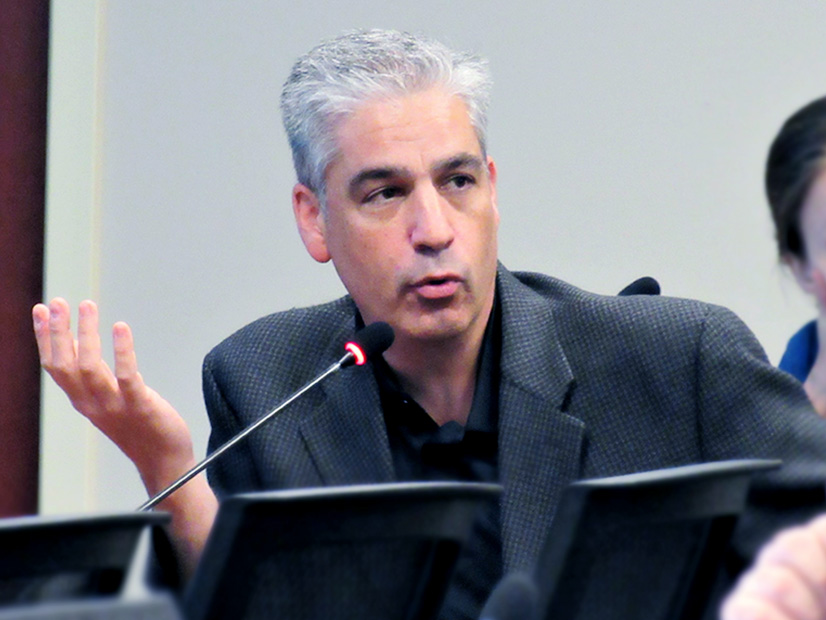MISO’s leadership has offered additional justification on its request to delay until 2025 incorporating energy storage resources into its markets.
Jeff Bladen, the RTO’s executive director of digital strategy, said the focus on replacing its market systems rather than promptly complying with FERC Order 841 will allow MISO to “get on with the work of enhancing the markets instead of enhancing the technology that enables the markets.”
“The work could have been better coordinated and presented to stakeholders in advance of the filing,” he told stakeholders during an April 15 Market Subcommittee (MSC) meeting.
In a March 4 filing with FERC, the grid operator asked for a March 2025 compliance deadline, a three-year delay (ER19-465). The stakeholder community had little notice of the move and was taken aback by the announcement during a March MSC teleconference. (See MISO Stuns Stakeholders with 2nd Order 841 Delay.)
Bladen acknowledged that industry experts on Twitter are questioning why the market platform replacement is taking so long. He said the platform being constructed will employ “some of the most powerful cloud technology in the world.”
“For better or for worse, the systems that MISO runs … are some of the most complex optimization systems in the world,” he said, adding that the systems are more intricate than those used in the airline industry.
“Not only is it more complex, it’s done every day,” Bladen said.
Adding ESR registrations on the legacy platform would “imperil” MISO’s ability to deliver the platform on-time, stretching out the go-live date by two or three years, he said.
Environmental Law and Policy Center’s Justin Vickers asked how internal benefit-to-cost analysis affected the decision. He said the delay threatens generation projects in the RTO’s interconnection queue.
“The trade-offs in costs and benefits are not simply dollars,” Bladen said.
Bladen said the “specialized expertise” required to both install a new platform and open MISO’s current markets to ESRs is so narrow that there simply aren’t two different groups of personnel available.
“One has to give,” he said. “One has to go later.”
Stakeholders asked whether the Order 841 delay portends a separate delay for Order 2222 compliance. The directive requires RTOs to establish rules allowing distributed energy resources to participate in organized wholesale markets on an aggregated basis.
During MISO’s March Board Week, Vice President of Market System Enhancements Todd Ramey said both Order 841 and Order 2222 implementation threaten to pull resources from the platform-replacement project.
“MISO has not been clear at all about the impacts on Order 2222,” Vickers said.
Bladen acknowledged that the “age and brittleness” of MISO’s current platform would make it very difficult to extend market participation to aggregated DERs in the near-term.





